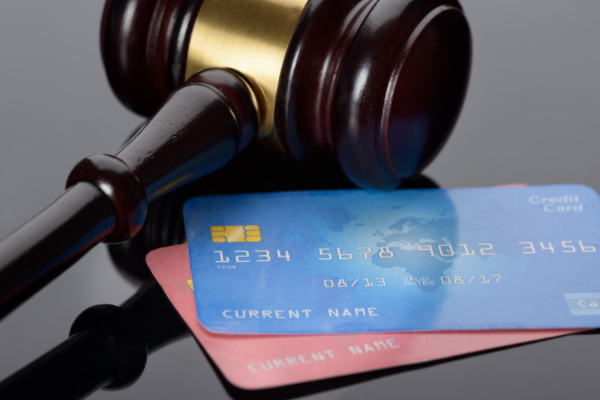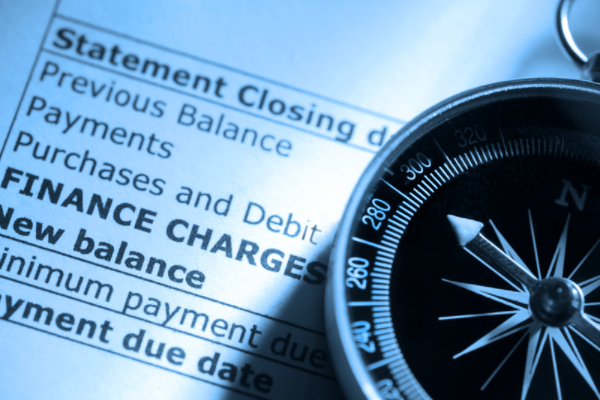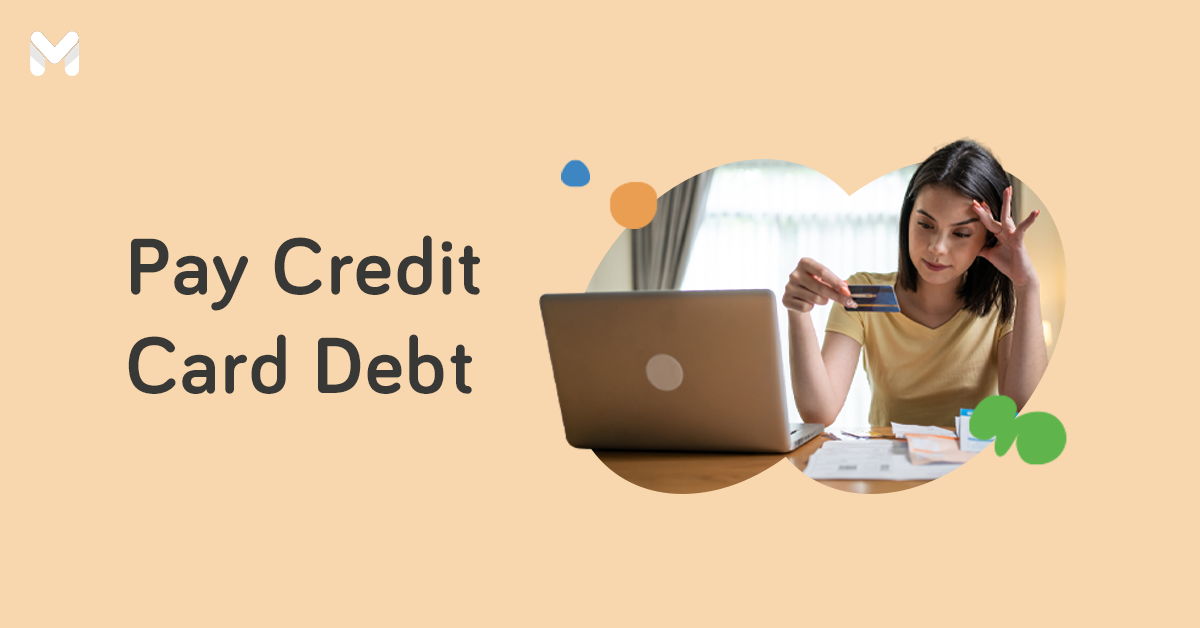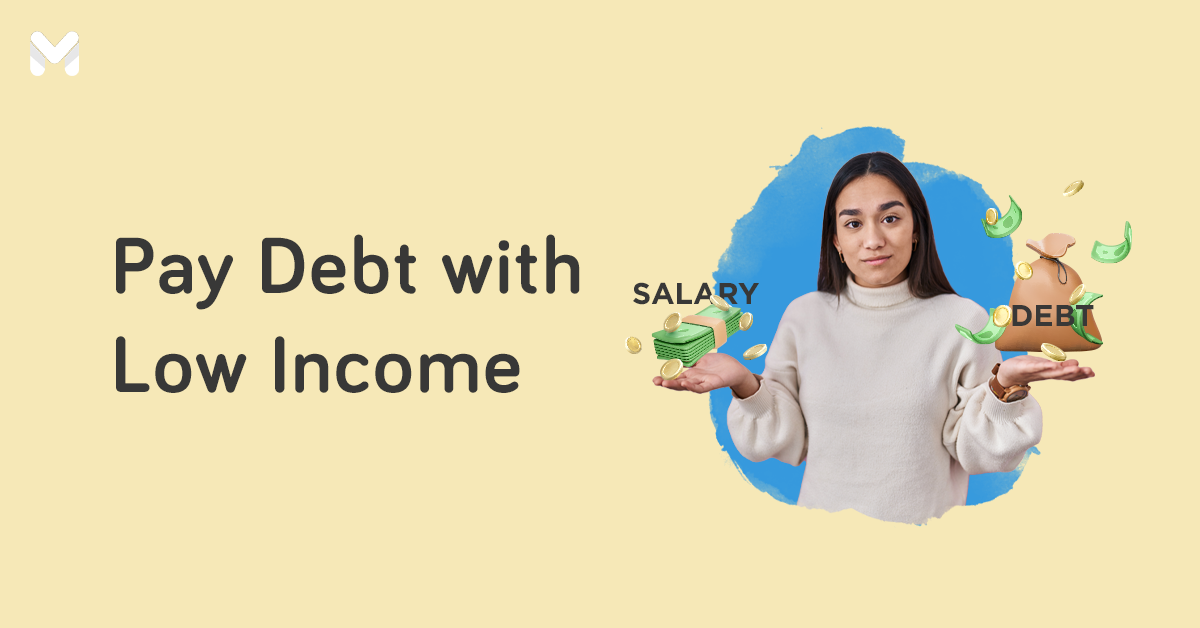“There's no such thing as a free lunch,” the 1975 book title of the free-market economist Milton Friedman couldn’t have said it better. In other words, everything has a cost. Yes, especially when it comes to credit cards. Any amount of credit that you consume comes with a fee.
Due to limited physical interactions, online shopping (aka spending) has been brought closer to households. Ironically. With the rapid advancements in technology, e-commerce, and digital payment systems, buying has become a lot easier with just a touch of a finger.
All these—and getting stuck at home due to community quarantine restrictions, tempting holiday ads, and unending promos and rewards—add up to entice you to use your credit card more. Next thing you know, you have maxed out your credit card, which means you have already reached your credit limit.
Are there really ways to avoid credit card delinquency? These are what we are going to discover in this article.
Credit Card Delinquency FAQs: How to Avoid Getting Into Debt
1. Is there a credit card law in the Philippines?

Republic Act (R.A.) No. 10870 or the Philippine Credit Card Industry Regulation Law (Credit Card Law) governs credit card issuers, acquirers, and credit card transactions in the Philippines. It lapsed into law on July 17, 2016. The Credit Card Law promotes fair and sound consumer credit practices in making consumer credit readily available to all Filipinos.
Even if credit cards have been existing in the Philippines since the 1970s, there was no law specifically governing it and the credit card industry, except for R.A. 8484 (Access Devices Regulation Act of 1998) and R.A. 7394 (Consumer Act of the Philippines).
2. What is credit card delinquency? When am I considered delinquent?

If you do not pay or even if you paid your credit card bill, but it is less than your "minimum amount due" or "minimum payment required" for at least three billing cycles, then the "total amount due" or "outstanding balance" for your billing period in the monthly statement of account may be considered delinquent.
Read more: Here’s Why You Should Never Miss a Credit Card Payment
3. What does "minimum amount due" or "minimum payment required" mean?
The Credit Card Law in the Philippines defines "minimum amount due" or "minimum payment required" as the minimum amount that a cardholder is required to pay on or before the payment due date for a particular billing cycle/billing period.
This may include the following:
- Outstanding balance multiplied by the required payment percentage or a fixed amount, whichever is higher
- Any amount that is part of any fixed monthly installment charged to the card
- Any amount which exceeds the credit line
- All past due amounts, if any
4. Can I pay only my minimum amount due every month?

Yes, though this is not advisable because you will incur finance charges. However, if you cannot pay off your balance's full amount every month, you may pay only the minimum amount due.
Ideally, you pay your total amount due so that you will not end up paying more in interest than the amount you originally owe.
Even the Credit Card Law explicitly requires banks to have the following statement printed in the billing statement:
"Important Reminder: Paying less than the total amount due will increase the amount of interest you pay and the time it takes to repay your balance."
Unfortunately, paying only the minimum amount is still a common mistake of many cardholders, which often results in credit card delinquency because of the finance charges and fees.
Related articles:
5. Should I review the Terms and Conditions even if they look legalese?
Yes. When applying for a credit card, the first thing you have to do is to review the T&Cs of the Credit Card Agreement, which is usually found on the reverse side of the bank's application forms. You have to be aware of the credit card fees and charges.
Since most banks post the application forms online or send digital copies via email, it is now easier to enlarge the size of the fonts. Note that banks and credit card issuers are also required to use the minimum Arial 12 font and size, or its equivalent in readability, for their table of fees, penalties, interest rates, and reminders. This enables consumers to read the T&Cs better.
If you haven't bothered reading the credit card terms and conditions before and are now a cardholder, you’d better read it now. While you don't have to memorize the document word for word, it is essential to understand the key portions, particularly the fees, as these will come in handy during the lifetime of your credit card account.
Many cardholders' delinquency situations could have been avoided had they reviewed their card issuer’s T&Cs. If anything is confusing or unfamiliar to you, do not hesitate to call and ask your bank or credit card issuer. They are also bound to make their T&Cs understandable to their cardholders.
6. What are the critical items that I should pay particular attention to in the T&Cs?

To avoid credit card delinquency, make sure to review the interest rates (Stay away from those with high rates because it might lead you to become over-indebted), as well as the table of fees and charges of your T&Cs.
Here are some items that you have to watch out for:
Membership fee
Other banks or credit card issuers refer to this as an annual membership fee, annual fee, joining fee, or application fee. This is the amount you are charged for using the credit card and acquiring access to other card membership benefits. Others waive the annual fee for the first or second year, but you have to know how much you will have to pay once these waived fees lapse.

Cut-off date
The end date of your billing cycle is your cut-off date. You have to be conscious of your cut-off date because this is when all your purchases are summarized.
Let's say that your cut-off date is on the 15th of every month. You wanted to make a big purchase on the 14th. But it will increase your outstanding balance such that you will not be able to pay it anymore on your payment due date.
Tip: You might as well consider deferring buying it after your cut-off date, that is, on the 16th. This way, it will be reflected on your next billing statement when you know that you'll be able to manage your finances.
Payment due date
It is the date when you have to pay your credit card bill. Always pay on or before your due date so that you will not incur late payment fees and late payment charges. Note that if your payment due date falls on a weekend or regular national holidays, your payment due date is automatically moved to the next business day. Therefore, your payment will not be considered a late payment.
Finance charges
This is applied when you pay only the minimum amount due or when you pay only any amount less than your outstanding balance on or before the due date.
Late payment charges
This is the penalty for not paying card usages and charges on the payment due date. Yes, this is different from the late payment fee, which is explained below.
Late payment fee
This is imposed when you paid less than the minimum amount due or paid after the payment due date.
Acceleration clause
This is when the credit card issuer has the right to demand the full settlement of the obligation. This usually occurs in case you default on your credit card or you did not pay any amount due.
7. I received a notice from my bank of 5 years that it's increasing my credit limit. Can I refuse this?
Yes, you can refuse. While RA 10870 allows banks to implement changes in your credit card limit (based on their risk management policies and guidelines when they review your credit standing and financial capacity), they are also required to notify you first of such changes. Of course, you can even decline any limit increase to reduce your risk of overspending with your card.
You also have the option to request a credit limit adjustment subject to the approval of your credit card issuer.
8. Where should I report my credit card-related complaints and concerns?

The Bangko Sentral ng Pilipinas (BSP) is the regulatory agency that supervises all credit card issuers in the Philippines. The BSP issued Circular No. 1003 (Guidelines on the Establishment and Operations of Credit Card Issuers to Implement R.A. 10870) in 2018, requiring banks to establish a Consumer Assistance Unit for elevating credit card-related complaints, inquiries, and requests. Banks must provide prompt action to consumers within 10business days.
The BSP also prohibits banks from issuing pre-approved credit cards to consumers who did not apply for a credit card.
Final Thoughts
Credit cards allow making purchases that would otherwise take a while for you to buy. They are also helpful during an emergency.
As a responsible consumer, you must consider your spending habits. Constantly monitor your transactions. Take charge by controlling your finances and preventing overspending to avoid credit card delinquency. It is important to make on-time payments, so you don't fall behind, and it does not affect your creditworthiness.
A credit card is a financial tool—do not allow your spending to get out of control. Use it smartly. Remember: there is no free lunch, so pay up and don't run up.
Email Us Your Questions!
Got questions about managing debt and loan payments? Email them to askmoneymax@moneymax.ph (with this subject line: Ask Moneymax), and we will try to address them in one of our next articles.
Editor's note: This is the third in a series of articles helping Filipinos manage debt in the new normal. Stay tuned for more information and advice from the Ask Moneymax column!
See other Ask Moneymax articles:
- I Can’t Pay Off My Debt This Pandemic. What Should I Do?
- Dear Lender: Go Easy on Me! It’s Pandemic and I’m Bankrupt, er, Insolvent

DISCLAIMER: The information provided on this website does not, and is not intended to, constitute legal or financial advice. All information, content, and materials available on this site are for general informational purposes only. Information on this website may not constitute the most up-to-date legal or other information and is subject to change without notice.
No user of this site should act or refrain from acting on the basis of information on this site without first seeking legal advice from their own attorney in the relevant jurisdiction. Only your individual attorney can provide assurances that the information contained herein – and your interpretation of it – is applicable or appropriate to your particular situation. Use of, and access to, this website or any of the links or resources contained within the site do not create an attorney-client relationship between the reader, user, or browser and website authors, contributors, contributing third parties, and their respective employers.
All liability with respect to actions taken or not taken based on the contents of this site are hereby expressly disclaimed. The content on this posting is provided "as is;" no representations are made that the content is error-free.







.png)

